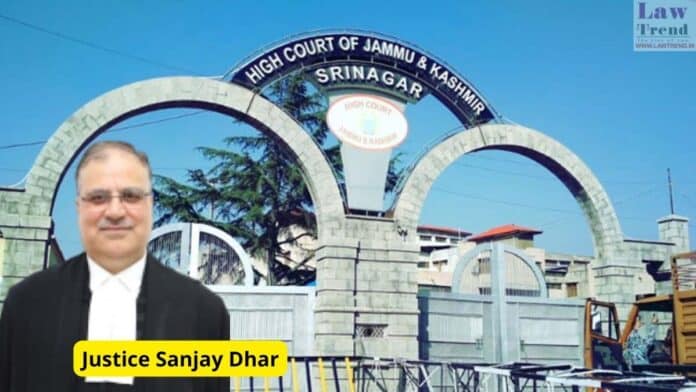The Jammu and Kashmir High Court has dismissed three petitions challenging an FIR registered in 2011 under various sections of prevention of corruption act in a drug kit scam, saying the “power of quashing criminal proceedings has to be exercised very sparingly and with circumspection and that too in the rarest of rare cases”.
The FIR was related to an inquiry by Anti-Corruption Bureau (ACB) against the then director of health services (Jammu) Ashok Kumar Sharma, members of tender opening committee, officers and officials of National Rural Health Mission (NRHM) and the members of the verifying committee as also others, into allegations regarding purchase of medicines worth crores of rupees on exorbitant rates.
It was also alleged that the medicines were procured from firms which had been permanently de-registered or blacklisted by the Directorate General Health Services (Medical Stores Organization), New Delhi.

The petitioners – verification board member Deepak Kapoor, the then managing director (MD) of Bengal Chemicals and Pharmaceuticals Limited Suprakash Kundu, the then MD of Karnataka Antibiotics and Pharmaceuticals Limited Suhas Laxman Phadke and the then director (finance) of Hindustan Antibiotics and Pharmaceuticals limited Sitaram Vaidya – challenged the FIR in the court.
After hearing the petitioners through their lawyers and Senior Additional Advocate General Monika Kohli, Justice Sanjay Dhar said the inquiry conducted, prima facie, established the allegation that the director of health services purchased the drug kits during 2010-11 on exorbitant rates in total disregard of codal formalities prescribed for purchase of drug kits thereby causing huge loss to the public exchequer.
“From the foregoing analysis of law on the subject, it is clear that, at the time of considering a petition for quashing of an FIR, the court has only to consider whether the allegations made in the FIR disclose commission of a cognizable offence. It is not required to analyse the merits of the allegations and the court has to permit the investigating agency to investigate the allegations in the FIR.
“It is further laid down that the power of quashing criminal proceedings has to be exercised very sparingly and with circumspection and that too in the rarest of rare cases and the Court should not embark upon an enquiry as to the reliability or genuineness or otherwise of the allegations,” the court said.
Also Read
Dismissing the petitions, Justice Dhar observed that the allegations clearly disclose commission of cognisable offences, and therefore, it would not be open to the court to stifle a genuine prosecution by interdicting the investigating agency from undertaking investigation and launching prosecution against the arraigned officials and parties.
On the contentions raised by Kapoor, the court said it has been established during investigation of the case that most of the drugs supplied were not manufactured by the suppliers but by other private drug manufacturers as was evident from the labels affixed upon these drugs.
“It was also found that the members of the verification board including the petitioner had certified that the procured drugs are of standard quality without actually undertaking any check in this regard,” the judge said.
The court rejected the argument of other petitioners that they do not fall within the definition of “public servant” as contained in Jammu and Kashmir Prevention of Corruption Act, as such, the respondent does not have jurisdiction to probe their role.
“The argument, it appears, is without any merit for the reason that, even if, it is assumed that the petitioners/Managing Directors of CPSEs (Central Public Sector Enterprises) are not public servants within the meaning of sub Section (2) of Section 2 of J&K P.C Act, still then, it is a settled law that a person, who is not a public servant can be prosecuted for the offence of criminal conspiracy along with other public servants, who have been booked for substantive offences under the said Act,” the judge observed.
Apart from this, he said the expression “public servant” as per clause 15 of Section 21 of RPC includes every officer or servant of a corporation or of a government company.
“… Therefore, while investigating an offence under the provisions of J&K P.C Act that has been committed within the erstwhile State of Jammu and Kashmir, if role of a person, who qualifies to be a public servant surfaces, he can be booked and prosecuted for having committed an offence under the provisions of J&K PC Act even if he resides beyond the limits of the State of J&K,” the judge said.







